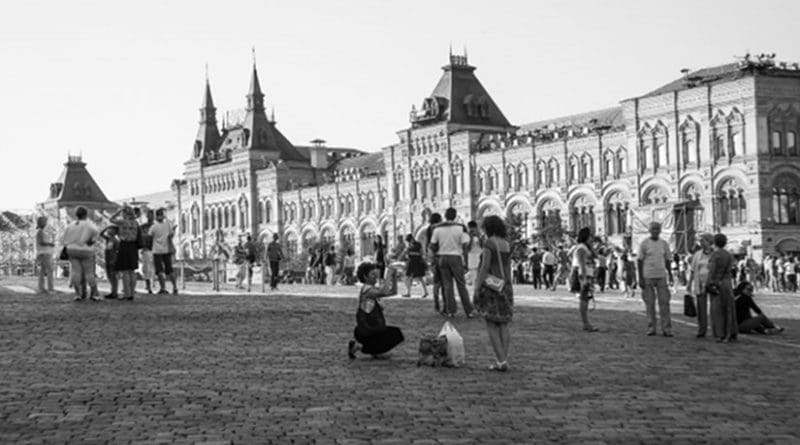Immigration Now Failing To Compensate For Russia’s Excess Of Deaths Over Births – OpEd
By Paul Goble
For the first time in a decade, the influx of immigrants into Russia during the first ten months of 2018 has failed to compensate for the excess of deaths over births among permanent residents of the country, according to the Russian government’s statistics agency (gks.ru/free_doc/doc_2018/info/oper-11-2018.pdf).
Rosstat reports that during this period, the natural decline of the indigenous population was 180,500 while net migration amounted to only 101,800, a pattern that means that migrants compensated for natural decline by only 56.4 percent. And the pattern was widespread: Only 22 of the more than 80 federal subjects showed natural growth in their populations.
That means that the total population of the country declined by 78,700 over this period, the first time that has happened since 2008. Nikita Mkrtchyan, a demographer at the Russian Academy of Economics and State Service, says that there is every reason to believe that this trend will continue (rbc.ru/economics/20/12/2018/5c1b70829a7947f16ebceb04).
“In 2018, after a lengthy interval was renewed the decline of the population in Russia, and even positive changes which could occur in the last quarter of this year will not lead to a different result.” In-migration has just fallen too far: It is down by 43 percent compared to the same period in 2017
The decline in migration from Ukraine was 74 percent, from Uzbekistan 70 percent, and from Kyrgyzstan 40 percent. “The CIS countries are the basic donors of migrants for Russia, but this resource is exhausting itself.” Now people from Ukraine and Moldova try to go to Western Europe rather than Russia.
The reason is that “the competitive possibilities of Russia in comparison with the countries of the European Union is weak.” Consequently, people are going there when they can.
The chief reason for natural population decline in Russia remains the falling birthrate. In the first 10 months of this year, there were 66,000 fewer births than in the same period a year earlier. Efforts to promote more births have failed to compensate for the declining size of the prime child-bearing cohort.
“The contraction of the total number of the population of the country means that the number of Russians of working age will fall, and the number of elderly citizens will rise. The first will put a brake on economic development, BKS economist Vladimir Tikhomirov says, noting that there is already a labor shortage in many areas.
He also notes that the worsening economic situation is playing “not the last role” in these trends. “The real incomes of Russians have contracted over the course of the last four years.” This trend isn’t likely to change soon.

